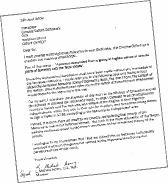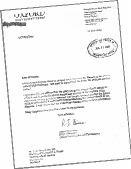Don't disrespect! - Mike takes on The Oxford Dictionary
Published: Sunday | July 19, 2009


Robert Lalah, Assistant Editor-Features
You perhaps didn't know about it, but there was a battle taking place over the past three months that saw a Jamaican going up against one of the largest and most respected literary institutions in the world. Guess who won.
In one corner, there was mild-mannered Transport Minister Lester Mike Henry, who, in his own right, is a highly regarded writer and publisher with a known affinity for things Jamaican. In the other corner, was a veritable Goliath of the literary world, Oxford University Press, a department of the University of Oxford in England and publishers of the well-known Oxford dictionaries.
How it began
It all started early one April morning when, while flipping through his copy of the Concise Oxford Dictionary, Henry stumbled upon the word Maroon, and the definition he saw, got his blood boiling.
A Maroon, in that edition of the Oxford Dictionary, was described simply as a person descended from a group of fugitive slaves in remote parts of Surinam and the West Indies.
"I was greatly offended and insulted by it! I know that any Jamaican would be. It's a perfect example of the miss-education of the Negro. There was no account of the bravery of the Maroons, who defeated the English in their flight for indepen-dence," said Henry last Thursday, still obviously upset.
"That victory was part of their war for freedom that forced the British to sign the treaty of 1738, that conceded to the Maroons, an independent area," said Henry.
So, as he spent some time going over the definition, reading it over and over, he found himself getting increasingly upset. He decided to do something about it.
Henry gathered himself and penned a short, and somewhat curt letter to the editor of the Oxford Dictionary, in England.
"I must protest most vigorously this entry in your dictionary," the letter read.
"(I) refer you to the British Archives to see if the British would describe the Maroons in this way. For my part, I now draw attention to this entry to the Ministry of Education and all the schools in Jamaica as I seek their input, in what I consider to be an insult to my country's history and the Maroons," Henry continued.
"Indeed, it is even more an insult to my country, considering that Nanny of the Maroons is one of our national heroes. But such is the miss-education of the Negro, and the continued attack by the former enslavers on the minds and history of the people."
The response
The letter was dispatched in mid-April. Almost three months passed with no response and Henry went about his business, assuming his venting had fallen on deaf ears. But on the 7th of July, a letter showed up at the Ministry of Transport and Works in St Andrew. It was from Angus Stevenson, project manager, Oxford Dictionaries and Thesauruses. It read, in part:
"I apologize for any offence that the entry has given. I agree that it should be revised, and in particular that it should take account of the exploits of the eighteenth-century Jamaican Maroons who fought two wars against the British settlers, both of which ended with treaties affirming the independence of the Maroons. I will ensure that we make these changes at the earliest opportunity."
Details wanted
It was a victory for Mike Henry, but one which he said, he would not fully claim until he is given more details.
"I accept the letter and the concession on their part, but I was not told when the changes will be made," he said.
"I would also call on them to withdraw all their dictionaries currently in circulation, which contain this insulting entry. That would show me that they are serious."
Henry said that since this incident, he has put together a small, informal team to go through other dictionaries, to check the definitions given for other words that are uniquely part of Jamaican culture and heritage. "I would add to that, that we also, in our own schools, need to pay closer attention to the material that we present to our children. The Oxford Dictionary has long been used in Jamaican schools, and this has shown me that we must be more vigilant about what we are teaching our children about ourselves," he said.
robert.lalah@gleanerjm.com
